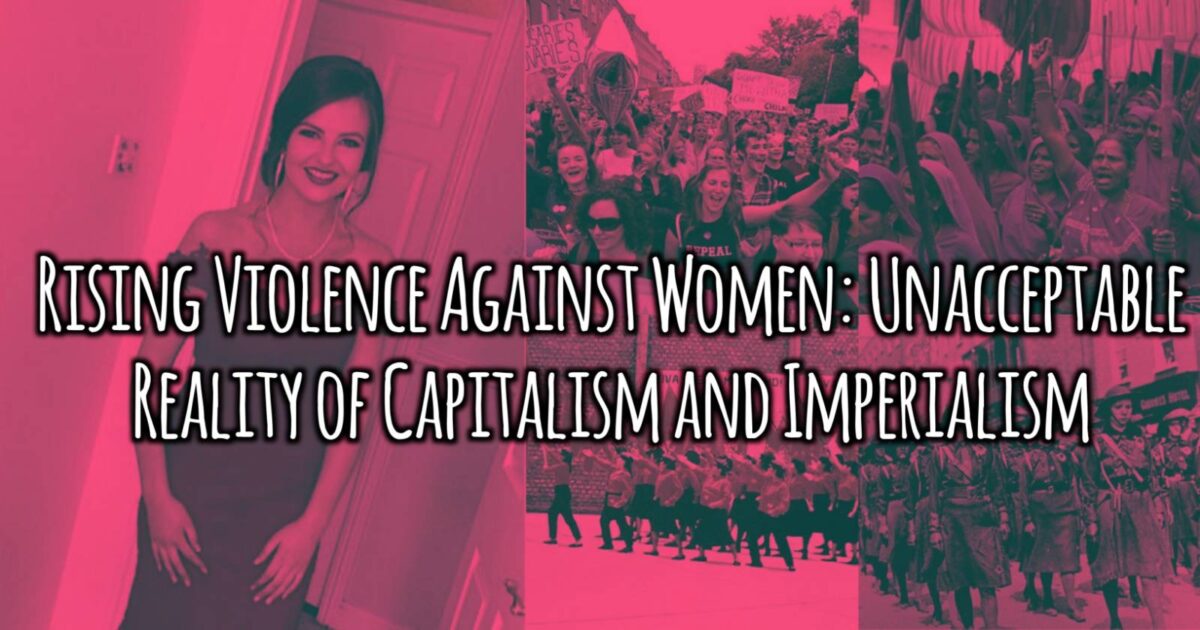This morning, Ireland woke up to the shocking news that a young primary school teacher had been brutally murdered in Tullamore, Offaly in a random attack. 23-year-old Aisling Murphy was jogging in broad daylight on the canal in Tullamore, just an hour after finishing teaching first class students in a local primary school, when she was brutally attacked and murdered in cold blood, without provocation. Two other women also exercising in the same popular and scenic location arrived on the scene and saw the attacker fleeing. A family have now been left with a gaping hole and a community has been thrown into turmoil as it tries to come to terms with the anti-women violence on its streets. It has not been lost on the nation that the attack took place at a stretch of the canal known as Fiona’s Way, named after local woman Fiona Pender who disappeared when six months pregnant in 1996 and is herself presumed violently murdered and is known throughout the country as one of Ireland’s ‘missing women’.
The shocking murder of Aisling Murphy comes on the back of a wave of rising violence against women in Ireland. Recent months have seen the return of spiking attacks on women when out socialising, in many cases involving women being injected with a concoction of drugs in planned attacks. It also comes just two weeks after the very violent attempted murder of 17 year old Alannah Quinn Idris in Ballyfermot, who was brutally attacked by a gang of four men, some of who had been waging a bullying campaign against the teenager for years, and obviously thinking that they could get away with a brutal level of violence against women. Their view was no doubt reinforced when a Free State judge released two of the 18 year old perpetrators on bail of just €200.
Writing in 1915, the Irish Socialist Republican leader James Connolly said, ‘The worker is the slave of capitalist society, the female worker is the slave of that slave.’ This remains the case in 2022 under the exploitative system of Capitalism and Imperialism. Violence against women is an inherent reality under the oppressive capitalist system and the only way to address it is to deal with the root cause of the issue and overthrow the system of oppression itself.
The issue of violence against women is not only a womens issue. It is an issue for the whole population, and it must be struggled against by men just as much as by women. Gender-based violence must be correctly analysed in its context of the class struggle so as we can better understand its causes and its solution. There is no justice for attacked women under the capitalist system. Those who engage in violence against women invariable receive very lenient sentences in the courts, whose role is not justice, but upholding the capitalist system of exploitation.
Anti Imperialist Action Ireland upholds the Revolutionary position of Proletarian Feminism, that is, we understand that the fight for women’s liberation is firmly placed within the Class Struggle and the fight for Socialism of which it is a key plank. We believe that the Proletarian Feminist position is best understood in the words of its leading theoretical proponent, Anuradha Ghandy, a late member of the Communist Party of India (Maoist), who wrote the seminal work ‘Philosophical Trends in the Feminist Movement.’ Ghandy argued that ‘The struggle for women’s liberation cannot be successful in isolation from the struggle to overthrow the imperialist system itself.’
Therefore, while the rising violence against women in Ireland is a major cause of concern, Proleterian Feminism gives a light of hope for how such violence can be confronted and overcome through the struggle against capital and imperialism.
With no justice to be found in the Free State or British Legal System in Ireland, the Proletarian Feminist approach advocates looking elsewhere for justice. As part of the class struggle there can be no room for patriarchal views, sexism or misogyny within society and such views much be confronted each time they raise there heads in a forthright manner. There must be zero tolerance of violence against women and those who perpetrate such actions should be isolated in the community, local shops, pubs. Restaurants, taxis and buses should refuse them service, local sporting clubs should refuse them membership and in this way, they can be held accountable through the People’s Justice.
A thorough programme of education in our schools about the women’s liberation struggle and about gender based violence must be put in place to tackle misogynistic ideas at a very early stage.
Women too should be encouraged to take the lead in this struggle and to be leaders in the class struggle and revolutionary movement. Women’s organisations for self defence should be organised and militant revolutionary women organisations, led by women for fighting the class struggle and oppression should be organised in communities across the country. In this regard working class women in Ireland can follow the example of women in Peru, who following the initiation of the Protracted People’s War in the 1980s established the Movimiento Feminino Popular to organise women for the class struggle and also to confront those who would engage in violence against women. In India, where violence against women is endemic, the Communist Party Of India (Maoist) has established similar womens organisations that empower women to directly confront those would engage in violence against them.
For such revolutionary organising, Irish Women can draw on a rich heritage from organisations such as Cumann na MBan and the Irish Citizen Army, the latter which trained women alongside men to be full combatants in the struggle for National Liberation. Ireland needs a popular women’s movement, to organise women for their defence and into the fight against imperialism. A key role of such an organisation would be training women to confront those who would engage in violence against them and hold them to account.
Towards this end, Anti Imperialist Action Ireland will be organising a reading of Ghandy’s ‘Philosophical Trends of the Feminist Movement’ for interested women. The reading group will take place online and discussions on the need of a Popular Women’s Movement will follow on from this study group. Those interested in taking part should email isrmedia@protonmail.com
‘
None so fitted to break the chains as they who wear them, none so well equipped to decide what is a fetter. In its march towards freedom, the working class of Ireland must cheer on the efforts of those women who, feeling on their souls and bodies the fetters of the ages, have arisen to strike them off, and cheer all the louder if in its hatred of thraldom and passion for freedom the women’s army forges ahead of the militant army of Labour.
But whosoever carries the outworks of the citadel of oppression, the working class alone can raze it to the ground.’- James Connolly

